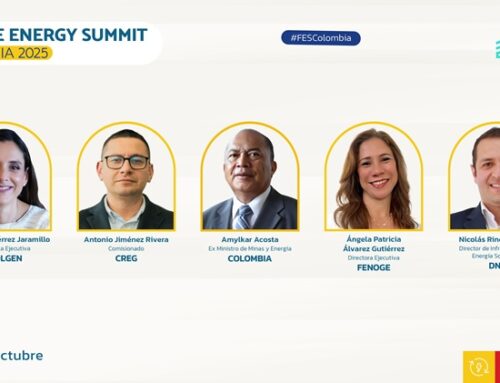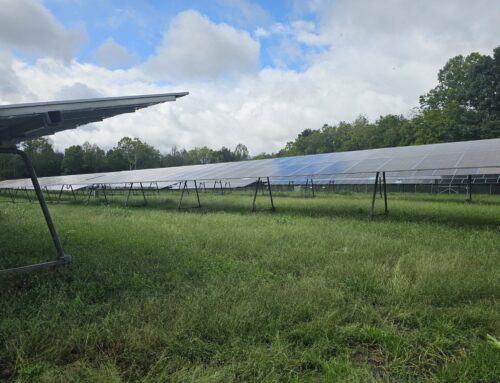Office for Sustainability releases annual report: Reflects progress, opportunities
October 10, 2025
Harvard released its 2024-2025 Annual Sustainability Report this week, sharing continued progress toward reducing emissions and advancing decarbonization, sustainable building, zero waste, and opportunities to create a healthier, more sustainable campus and future.
32 percent total emissions reduction
In 2024, Harvard saw a nearly 32 percent absolute reduction in greenhouse gas (GHG) emissions against a 2006 baseline, inclusive of a 14 percent increase in the campus’s physical footprint over that period. Harvard’s emissions per square foot have reduced 40 percent over that same time period. Progress is credited to a variety of energy efficiency and decarbonization initiatives, including more efficient equipment and lighting, heat recovery projects, retrofits of historic buildings with modern and more efficient technology, and new construction.
In 2024, with input from faculty advisers and operational leaders, Harvard updated its holistic Sustainable Building Standards that now target Living Building Challenge (LBC) Core certification and Harvard’s Healthier Building Academy goals. The University continues to advance toward its goal to be Fossil Fuel-Free by 2050.
Harvard also announced the Consortium for Climate Solutions, a first-of-its-kind partnership led by Harvard, MIT, Mass General Brigham, and PowerOptions with partners in the city of Cambridge and other local non-profits. The consortium enabled the development of two new large-scale renewable energy projects that will provide 1.3 million+ megawatt-hours of clean electricity annually — equal to the emissions from 130,000 homes’ electricity consumption over one year. This, combined with Harvard’s renewable procurement in New England, means that the University is purchasing the equivalent 100 percent of its electricity use from renewable sources starting in 2026.
Sustainable Building Standards target LBC Core, HHBA
Harvard’s updated Sustainable Building Standards now target Living Building Challenge (LBC) Core certification and Harvard Healthier Building Academy (HHBA) requirements that focus on healthier building materials, enhanced indoor air quality, and access to daylight. The revised Sustainable Building Standards emphasize reduction in embodied carbon, avoidance of toxic classes of chemicals in building materials (e.g., PFAS), and improved resiliency, biophilic design, and energy-efficient enhanced ventilation. Harvard executed a volume certification program with Living Future to reduce the administrative costs of sustainable building certification and to create pre-approved pathways to enable cost-effective solutions to all requirements for certification.
The David Rubenstein Treehouse Conference Center, opening this fall with no fossil fuels on-site, exemplifies Harvard’s new building approach. Its mass timber structure and foundation made from concrete containing recycled ground glass pozzolan (GGP) help reduce the building’s embodied carbon by more than half compared to conventional buildings. The Rubenstein Treehouse features on-site stormwater management and regionally sourced, healthier materials that have been selected to be durable and cost-effective. The project is also piloting bird-friendly design standards and an energy-efficient ventilation system that supplies 75 percent more fresh air in public spaces.
Advancing sustainable operations
In recognition of the growing impact of digital operations, Harvard University Information Technology (HUIT) has launched new sustainable IT initiatives. Over the past year, HUIT ramped up secure device and e-waste recycling drives, diverted hundreds of electronics from landfills, and hired its first Sustainable IT Lead to better understand strategies to reduce IT-related emissions and support responsible lifecycle management. The University also launched a new framework for waste stewardship that maps out a plan to transition campuses to zero waste.
Harvard is on track to achieve its goal to reduce food-related GHG emissions by 25 percent by 2030. The 2024-2025 academic year marked the fifth year of Harvard’s Sustainable and Healthful Food Standards. Developed collaboratively by faculty, students, and staff, the standards guide food vendors in sourcing healthy ingredients, reducing food waste, and supporting food system sustainability. Harvard operates 19 Certified Green Restaurants, earning top recognition from the Green Restaurant Association for environmental performance and offering healthier dining options.
Student engagement, climate research
Students are engaging and prioritizing sustainability through opportunities like the Council of Student Sustainability Leaders, and climate-related internships, research projects, and grant-funded work provided by the Salata Institute for Climate and Sustainability. Harvard’s world-class faculty, researchers, and staff are advancing important academic research and teaching, and projects that explore innovative, sustainable solutions on and beyond Harvard’s campus.
Search
RECENT PRESS RELEASES
Related Post




